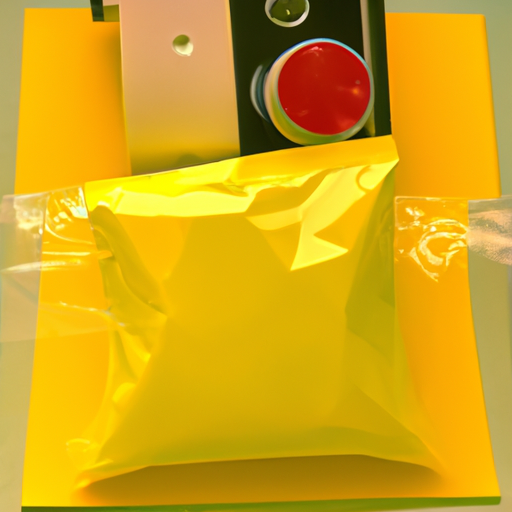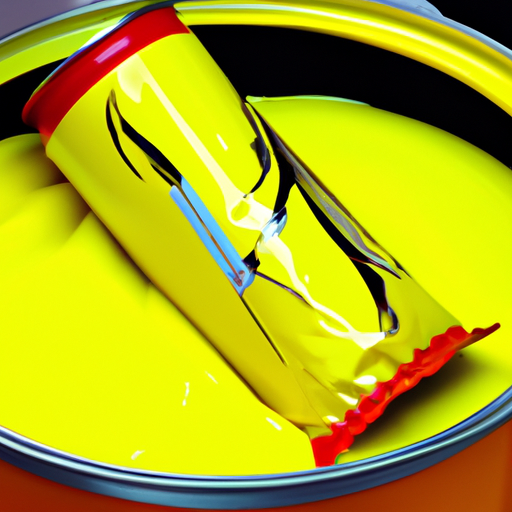
-
Table of Contents
Packaging for Fictional Products: Bringing Imaginations to Life

When it comes to fictional products, packaging plays a crucial role in bringing these imaginative creations to life. Whether it’s a magical potion from a fantasy novel or a futuristic gadget from a science fiction movie, the packaging design can enhance the overall experience and captivate the audience. In this article, we will explore the importance of packaging for fictional products and how it can create a lasting impression on consumers.
The Power of Visual Storytelling
One of the key aspects of packaging for fictional products is its ability to tell a story visually. Just like a book cover or a movie poster, the packaging design sets the stage for the product and creates intrigue. It serves as a visual representation of the fictional world and its characters, enticing consumers to explore further.
For example, consider the packaging for Bertie Bott’s Every Flavor Beans from the Harry Potter series. The box features vibrant colors, whimsical illustrations, and playful typography, instantly transporting fans to the magical world of Hogwarts. The packaging not only reflects the essence of the product but also evokes a sense of nostalgia and excitement.
Creating an Emotional Connection
Effective packaging for fictional products goes beyond aesthetics; it creates an emotional connection with the audience. By tapping into the emotions associated with the fictional world, packaging can evoke a sense of wonder, joy, or even fear.
Take the case of the Stay Puft Marshmallows from the movie Ghostbusters. The packaging design features the iconic image of the giant marshmallow man wreaking havoc on the city. This instantly triggers a sense of nostalgia for fans of the movie and creates an emotional connection. The packaging becomes more than just a container; it becomes a cherished memento of a beloved film.
Enhancing the Brand Experience
Packaging for fictional products also plays a crucial role in enhancing the overall brand experience. It serves as a tangible representation of the fictional world and reinforces the brand identity.
Consider the packaging for the lightsaber toys from the Star Wars franchise. The design incorporates the iconic lightsaber hilt, complete with sound effects and a display window showcasing the product. This attention to detail not only adds value to the product but also immerses fans in the Star Wars universe. The packaging becomes an extension of the brand, creating a memorable and immersive experience for consumers.
Driving Collectibility and Merchandising
Packaging for fictional products can also drive collectibility and merchandising opportunities. By creating limited edition or special packaging designs, brands can tap into the collector’s market and create a sense of exclusivity.
For instance, the limited edition packaging for the Butterbeer from the Wizarding World of Harry Potter theme park features intricate illustrations and embossed details. This packaging design not only enhances the perceived value of the product but also encourages fans to collect and display it as a cherished item. The packaging becomes a collectible in its own right, extending the brand’s reach beyond the initial purchase.
Case Study: Willy Wonka’s Chocolate Factory
A classic example of the power of packaging for fictional products is Willy Wonka’s Chocolate Factory. In Roald Dahl’s beloved book and subsequent movie adaptations, the packaging for the chocolate bars plays a pivotal role in the story.
The golden ticket hidden inside the chocolate bar wrappers becomes the catalyst for the entire adventure. The packaging design, with its vibrant colors and whimsical typography, captures the essence of the magical world of Willy Wonka. It not only engages the readers or viewers but also becomes an integral part of the narrative.
The Role of Technology
In today’s digital age, technology has opened up new possibilities for packaging design. Augmented reality (AR) and QR codes can be used to enhance the fictional experience and provide additional content to consumers.
For example, the packaging for a fictional video game could include a QR code that unlocks exclusive in-game content or a mini AR game that can be played using a smartphone. This integration of technology with packaging creates a multi-dimensional experience and further blurs the line between fiction and reality.
Conclusion
Packaging for fictional products is not just about aesthetics; it is a powerful tool that brings imaginations to life. By visually telling a story, creating emotional connections, enhancing the brand experience, driving collectibility, and leveraging technology, packaging design can captivate audiences and leave a lasting impression.
From Harry Potter’s magical potions to Star Wars lightsabers, the packaging for fictional products has the ability to transport consumers to another world. It serves as a tangible representation of the fictional universe and allows fans to engage with their favorite stories on a deeper level.
As technology continues to advance, the possibilities for packaging design in the realm of fictional products are endless. Brands can leverage new technologies to create even more immersive and interactive experiences, blurring the boundaries between fiction and reality.
So, the next time you come across a fictional product on the shelves, take a moment to appreciate the packaging design and the role it plays in bringing imaginations to life.
